5 Mysterious Destinations Around the World Where Access is Forbidden!
The world is full of mysterious destinations that are off-limits to people. From ancient tombs to forbidden islands, these mysterious destinations have captivated the imagination of people for centuries. Here are 5 of the most mysterious destinations in the world where entry is permanently banned.
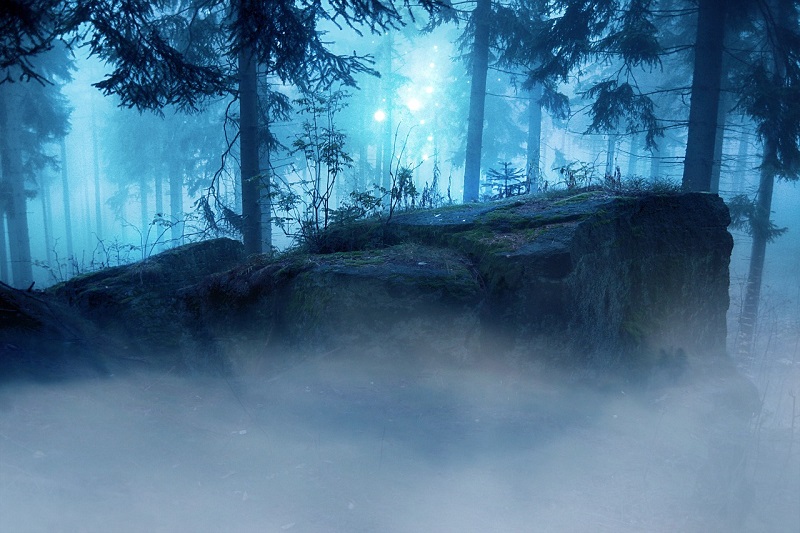
Discover Forbidden and Mysterious Destinations Around the World!
- North Sentinel Island
- Lasco, The cave in France
- Svalbard Global Seed Vault
- The sacred Mountain of Uluru
- Snake Island in Brazil
North Sentinel Island
Sentinel Island is one of the seven islands in Andaman and Nicobar. This island is known as the land of the Sentinelese tribe, which means that this tribe is very dangerous and aggressive.
The island is a protected area of India and is nominally part of the South Andaman administrative district, part of the Indian union territory of the Andaman and Nicobar Islands.
The Sentinelese people are not only primitive tribes but they are also the most aggressive and the most dangerous. There are not many places in the world that have this kind of tribe.
The Sentinelese people are fiercely independent and hostile to outsiders, and they have been living in seclusion on the island for over 60,000 years. In 2006, two fishermen washed up on the strand and were attacked and killed by the tribe.
The Indian government has recognised the Sentinelese’s desire to be left alone, restricting outsiders to remote monitoring (by boat and sometimes air) from a safe distance. In 2018, the Government of India excluded 29 islands – including North Sentinel – from the Restricted Area Permit (RAP) regime, in a major effort to boost tourism.
The government’s decision to allow research and anthropological access to the Sentinel islands is meant to ensure that researchers and anthropologists are allowed to visit the place.
North Sentinel Island is fringed with beaches, thick forest covers, and crystal cobalt waters. It is home to the Sentinelese, who use bows and arrows as weapons, and whose tools are mostly made of stone and animal bones, much like the people during the stone age. The mystery of North Sentinel Island has drawn the world’s attention to its reclusive inhabitants, making it one of the few mostly “uncontacted” groups left in the world.
Lascaux, The Cave in France
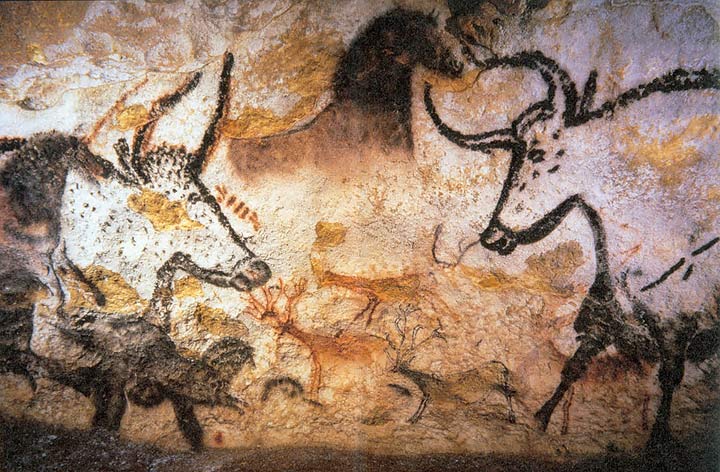
According to the UNESCO World Heritage List, the Lascaux cave is a Paleolithic cave located in the Dordogne region of southwestern France, near the village of Montignac. The cave is estimated to be up to 20,000 years old. In September 1940, four boys were exploring the area. They found a narrow crevice leading to the bottom of the cave, and, in their excitement, one of the boys slipped and fell down a hole.
When the other three followed, they slid all the way to the bottom. Marcel Ravidat, who’d fallen through the opening himself, shouted for help, and the boys managed to pull him out and get him to safety. For reasons unknown, the cave hasn’t been explored since.
The cave is a series of galleries that are connected by narrow tunnels. Each gallery is some 66 feet wide and 16 feet tall. The main gallery, which is known as the Great Hall, is magnificently decorated with painted, drawn, and painted figures, totaling more than 600. The art is thought to be about 15,000 years old and is primarily made of animal representations. It’s considered to be the work of many people who worked together. The painting is estimated to be about 17,000 years old.
The most numerous paintings are of horses, but deer, aurochs, ibex, bison, and even some felines can also be found. The art falls within the Upper Palaeolithic period and was created by the clearly skilled hands of humans living in the area at that time.
While there’s no consensus among scholars regarding the meaning of Lascaux paintings or other Paleolithic art, the prevailing view suggests that they represented a ritualistic or spiritual component that went beyond just mere representation. In 1979, the Lascaux cave was added to the UNESCO World Heritage list.
As of late, the cave has been beset with a fungus, variously blamed on a new air conditioning system that was installed in the caves, the use of high-powered lights, and the presence of too many visitors. Since then, the situation has gotten even worse: the cave has been affected by a black mold. In 2008, authorities closed the cave for three months, even to scientists and preservationists.
Svalbard Seed Vault
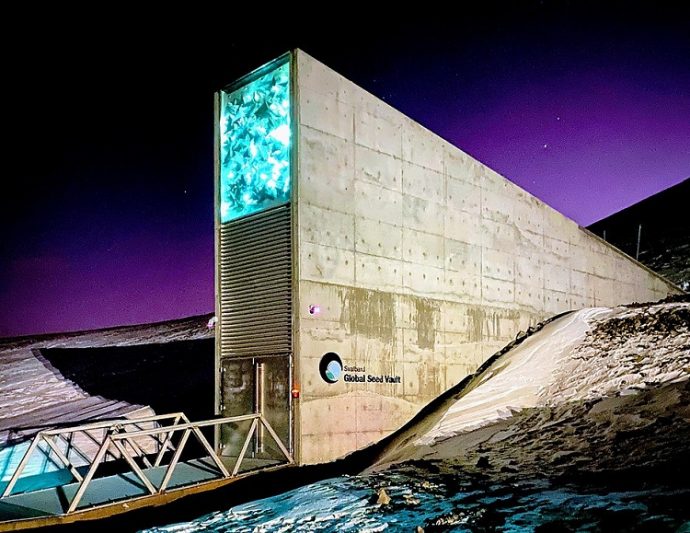
Located in Spitsbergen, Norway, this vault is one of the world’s best-kept secrets. If you haven’t heard of this vault yet, it’s about time you did. It is located in a sandstone mountain which is 1300 km from the North Pole and 130 meters above sea level.
Guarded 24 hours a day, A massive seed bank with a capacity of 5.4 million seeds, this vault has been built as a backup facility for the world’s food supply.
The vault is considered to be the “doomsday” vault because of its role as a reserve of seeds for use in case of an apocalypse or a catastrophic event.
When you enter the vault, the first thing that you will notice is the loud whirring noise of the ventilation systems and cooling units that are required to maintain the cold temperature in the vault.
Through the first door is a wide concrete tunnel lit by fluorescent lights leading 430 ft.
To get to the bottom of the mountain we will need to take a series of stairs. Once at the bottom, there is another chamber, a layer of security, designed to protect the vaults holding the seeds.
Samples of wheat, rice, barley, oats, rye, sunflower, soybean, potato, cotton, maize, sugar beet, tomato, banana, papaya, citrus, and other fruits and vegetables are stored in the vault. The samples are also collected from farmers and gardeners around the world, and it is the largest repository of seeds of wild relatives of domesticated crops and weeds.
This place was chosen because it has no chance of any kind of earthquake. All this planning has saved the seeds, but you can’t visit this place.
The Sacred Mountain of Uluru
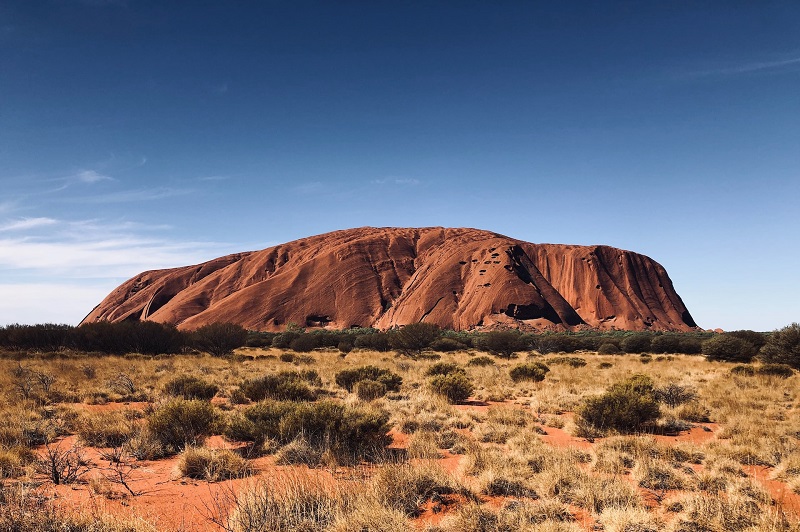
This area is a bit new where public access has actually been restricted. It’s called Uluru, and it’s also sometimes referred to as Ayers Rock. It has been a popular holiday spot for years.
Before the restriction, people used to climb to 345 meters in extremely warm temperatures.
In summer, the temperatures typically reach on about 47 degrees Celsius.
This climb has some very difficult parts that will put a lot of pressure on you.
Uluru is an important spiritual location for the citizens of Australia. The locals are opposed to visitors climbing up Uluru for its spiritual significance. Climbing in Uluru is forbidden.
October 25, 2019, was the last day anyone could climb this hill. Since then, there is a restriction on going down. Long lines of tourists were observed that day.
According to traditional Aboriginal cultural beliefs, prior to life on earth, there were spiritual regions, and Uluru is evidence of that.
Visitors to Uluru National Park can visit Uluru and just watch the spiritual hill, not climb it.
Snake Island in Brazil – Mysterious Destinations Around the World
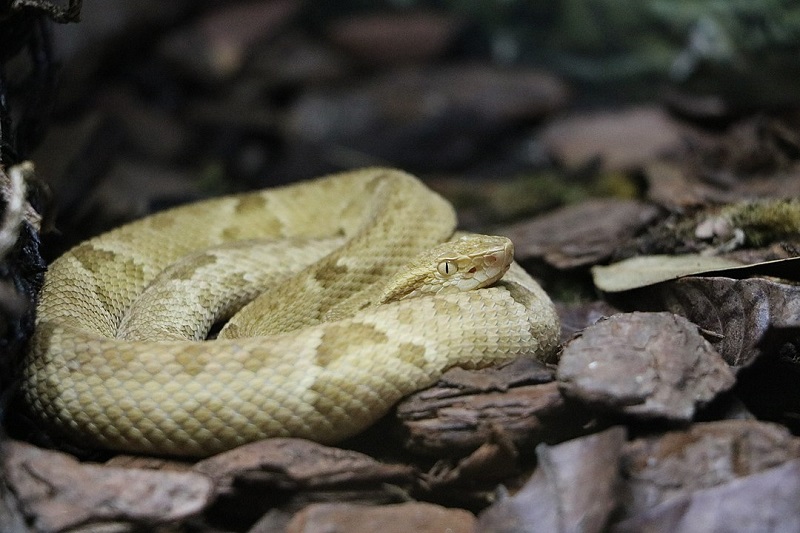
An isolated island off the coast of Brazil that’s rarely visited by tourists is not a good place to visit, nor is it a good idea to suggest
House to the ‘Golden Lancehead’, a very poisonous snake, one of the most dangerous in the world, whose bite can make a bird stop flying. These snakes use birds for their food.
The approximate number of snakes that might be found on each square meter of the island is estimated to be around one to five. Thus, the Brazilian federal government has actually forbidden people from going to Snake Island.
This restriction doesn’t only apply to scientists and researchers to travel with a personal physician. Those that are amazed by the gold lancehead snake varieties can see them securely somewhere else in Brazil.
In conclusion, the list of such locations is constantly growing, and the number of forbidden sites has increased. If you are planning a trip to one of these places, be sure to check if you have permission first, whether it be from a tour company or an official institution. The places on the list are known for their amazing scenery, breathtaking views, and their mystifying stories.


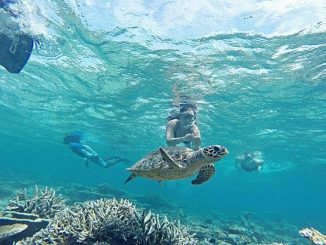
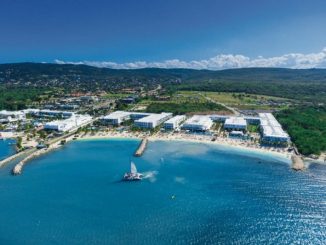

Be the first to comment